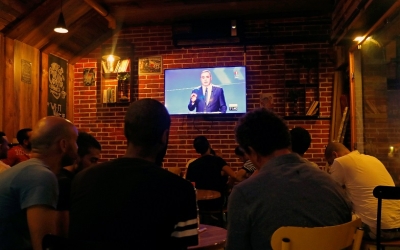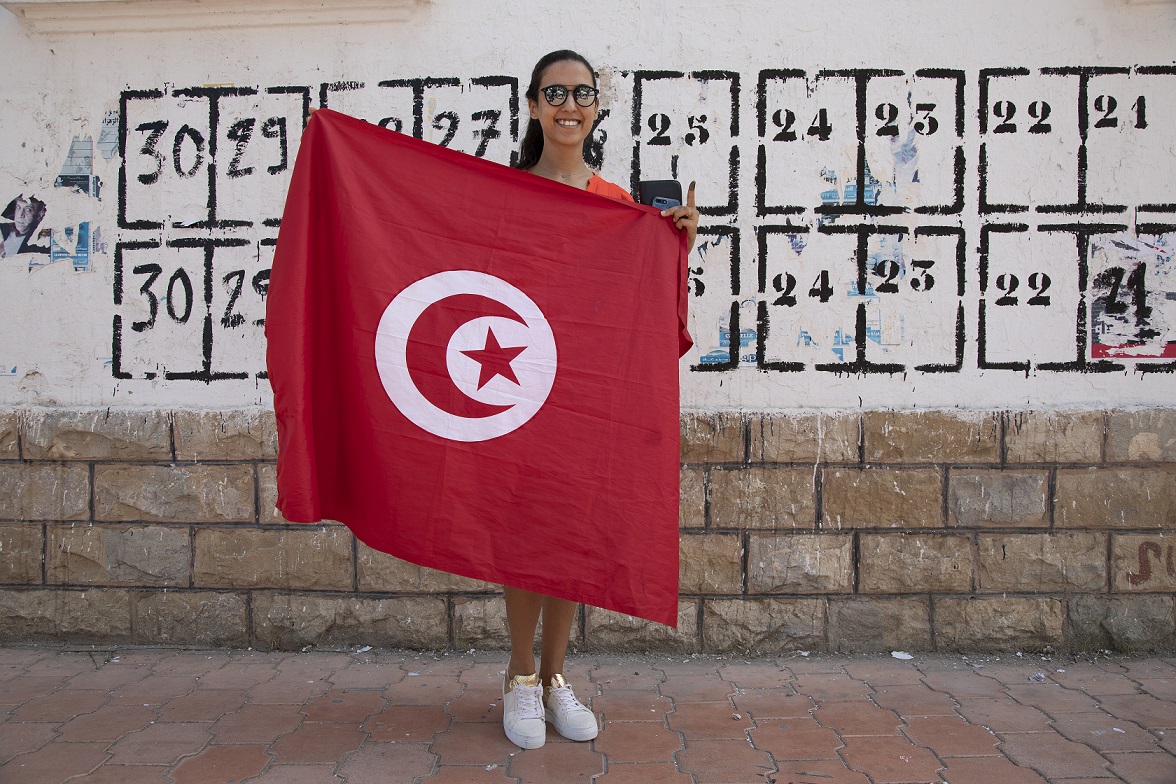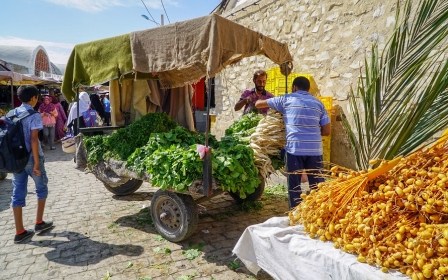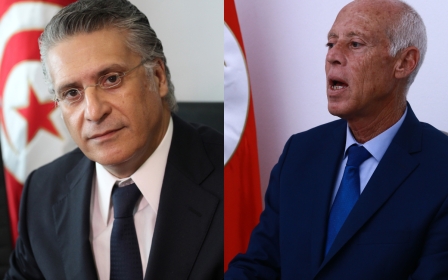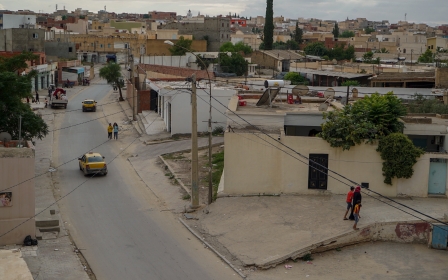Young people: Kais Saied's secret weapon in Tunisia's presidential election
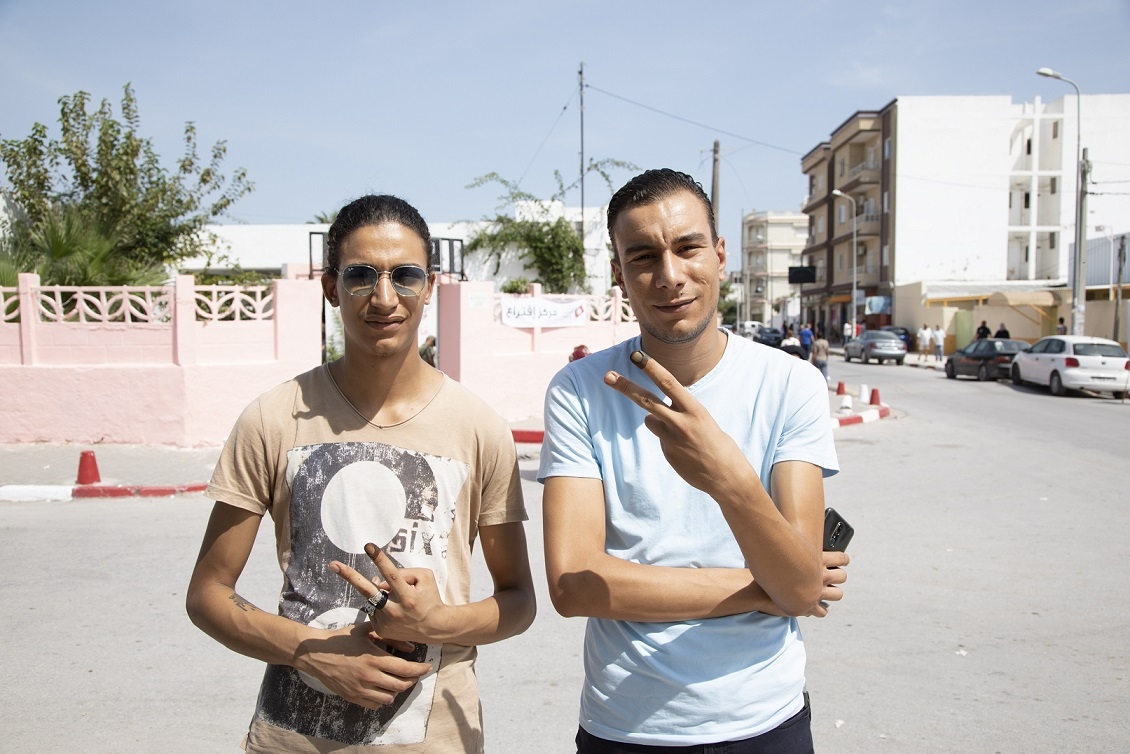
Tunisian election commission head Nabil Baffoun made a last-minute call to young voters on Sunday.
“Young people of Tunisia, you still have an hour to vote,” Baffoun said shortly before polls closed. “We must leave our homes and vote – it’s a right that we gained from the 2011 revolution that cost lives.”
'Young people feel we can no longer afford the rampant political corruption and privileges of the sitting politicians'
- Safouane Trabelsi, 3ich Tounsi
For many young voters, it’s the revolution – and the lack of progress and a sense of disillusionment that has built since then – that kept them from heading to the polls, they told Middle East Eye.
“I am not going to vote. The Tunisian revolution was the biggest mistake ever,” said 20-year-old Ali Rihani, riding in a taxi-bus from Tunis to Ben-Arous, a suburb of the capital.
But others told MEE that it was exactly this disenchantment that led them to cast their vote for Kais Saied, a 61-year-old law professor without political experience who has run a nearly non-existent campaign.
“Kais Saied is clean, independent and trustworthy,” 28-year-old Abdelhedi Hamzaoui told MEE. “We need someone who stands above party politics.”
On Tuesday, the election commission confirmed that Saied and Nabil Karoui, the media mogul who has been campaigning from jail amid a money-laundering probe, will face off during the second round of the presidential election, scheduled for 12 October.
'Candidate of the students'
A big boost for Saied appears to have come from young Tunisians. A poll conducted by Sigma Conseil found that 37 percent of voters between 18 and 25 and 20.3 percent of 26-to-45-year-olds voted for Saied, while older voters preferred Karoui.
“Kais Saied is the candidate of the students,” Hatem Milki, Karoui’s spokesman, told MEE about their rival.
“He has the image of the favourite professor. They are not necessarily more conservative, but voters between 18 and 25 have a different attitude towards the state, in contrast to their parents, they don't see the state as something functional.”
Yassine Masri, a 26-year-old journalist, said Saied owed his victory to “the system”. More young people would have voted for the left candidate Mohamed Abbou, she said, if it weren't for a last minute campaign against him by supporters of ousted president Zine El Abidine Ben Ali.
“One day before the elections, they started a massive slander Facebook campaign against left-wing political corruption fighter Mohamed Abbou. His rising popularity amongst youth terrified them," she said.
Safouane Trabelsi, co-founder of the 3ich Tounsi movement which is participating in the upcoming legislative elections and head of the group’s research department, said for many young voters Saied embodied their greatest concerns about the status quo.
“Young people feel we can no longer afford the rampant political corruption and privileges of the sitting politicians,” he said. “Kais Saied represents the best of both worlds: a political neophyte and experienced law professor with traditional values.”
Dorra Rahoui, a 19-year-old student, said she had made a list of her top three candidates – Abbou; Abdelfattah Mourou, the Muslim democratic Ennahda pary’s candidate; and Saied – and then whittled it down.
“Kais Saied was the one left,” she said, while waiting for the train to Tunis from the suburb of Ben Arous. “I am studying at his faculty. He is neutral, independent and more reliable than the others.”
Mould-breaking election
But Saied wasn’t the only benefactor of the youth vote.
Trabelsi said that the election broke the mould with identity becoming much less of a motivating factor for young people, and the broken economy a much bigger one.
'I am religious, but I choose for the most cultivated and educated candidate: Mohamed Abbou'
- Yousra Habouria, 25
“Classic dividing lines such as religious versus secularist or left-wing versus right-wing or progressive versus conservative are blurred,” he said. “The economy is the biggest issue. Young people are done with political infighting at the time when the economic situation is deteriorating.’
That was true for 25-year-old voter Yousra Habouria: “I am religious, but I choose for the most cultivated and educated candidate: Mohamed Abbou.”
Hamza Oueni, 30, said he voted for Youssef Chahed, the sitting prime minister, because at 44-years old, he was the youngest candidate, although Oueni didn’t seem all that enthused. “I don’t expect much of him, the role of the president is merely symbolic,” he said.
Twenty-year-old Farah Louati said she would throw her weight behind left-wing candidate Mongi Rahoui. “He is young, but experienced and supports individual liberties and social equality,” she said.
Sandra Maarf, a 28-year-old engineer draped in a Tunisian flag in front of the Ben Arous’ polling station, said she was most concerned about the country’s economic situation.
“Out of love for my country, I voted for the most dynamic and youngest candidate. I want someone who invests in IT and digitalisation. The country needs to move forward and be modernist," she said. "For whom exactly? I prefer to keep that to myself.”
This article is available in French on Middle East Eye French edition.
Middle East Eye propose une couverture et une analyse indépendantes et incomparables du Moyen-Orient, de l’Afrique du Nord et d’autres régions du monde. Pour en savoir plus sur la reprise de ce contenu et les frais qui s’appliquent, veuillez remplir ce formulaire [en anglais]. Pour en savoir plus sur MEE, cliquez ici [en anglais].


